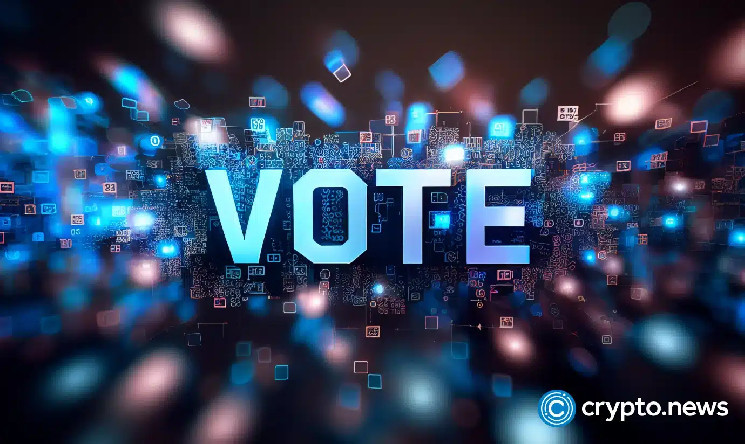
Patrick Bet-David, founder and CEO of Valuetainment, says blockchain can greatly improve voting systems around the world.
With the world changing so much amid artificial intelligence (AI), blockchain and Bitcoin, Bet-David wonders if new technology is what the world needs to improve the outdated voting process. It’s not only so as to improve voting systems in terms of transparency and accessibility, but to also get more people to develop confidence in these elections and their results.
The entrepreneur shared his thoughts in a YouTube video. Highlighting blockchain as “a shared immutable ledger that facilitates the process of recording transactions and tracking assets in a business network,” Bet-David says these features are what makes the technology suitable for application in blockchain voting.
U.S. states have piloted blockchain voting
To be fair, the issue of blockchain technology and voting isn’t a new topic. Researchers and experts have previously expounded on how countries can integrate this to greater effect. This has happened amid broader integration across virtually every facet of human life, from education, supply chains, health and agriculture.
It’s this growth that has seen some U.S. states pilot blockchain voting systems.
For instance, West Virginia became the first U.S. state to use blockchain voting through a pilot for federal elections. A publicly verifiable ledger that still maintains the anonymity of voters is key to this push for blockchain technology.
In his view, Bet-David thinks this is the way to go.
Other than a decentralized ledger that records votes, immutability means each cryptographically signed vote “cannot be altered without detection.”
Apart from West Virginia, other U.S. states that have piloted blockchain voting systems are Utah, Colorado, and Oregon.
“In Denver, Colorado, one of the pilot programs allowed overseas voters and active duty military personnel to vote for Municipal elections through a blockchain-based smartphone app,” Bet-David noted.
A voter in Utah also became the first person to vote for president on the blockchain. Meanwhile, blockchain-based voting apps have worked in Switzerland, Japan, Brazil, South Korea and Russia.
Issues with blockchain voting
While he champions the use of blockchain to allow for transparency and accessibility in elections, Bet-David notes that implementation of the technology does face some challenges.
Critics have outlined concerns such as technical and security issues, including scalability and cyber-attacks. There are also legal and regulatory hurdles, particularly around voter anonymity and privacy. U.S. states that have expressed concerns and are uncomfortable with the system include New York, California, and Texas.
But with trust in the U.S. government having gone down from 73% in 1958 to about 16% today, it might be the new technology that brings younger generation onboard.
